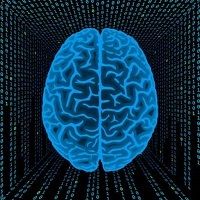Does Alzheimer's Start Before Birth? Bronx Researchers Say It's a Developmental Disorder
Alzheimer's Disease is generally an ailment associated with aging.But Mark Mehler, MD, a neurologist and a professor of psychiatry and behavioral sciences at Albert Einstein College of Medicine in the Bronx, NY, believes it starts in utero.

Alzheimer’s disease is generally an ailment associated with aging.
But Mark Mehler, MD, a neurologist and a professor of psychiatry and behavioral sciences at Albert Einstein College of Medicine in the Bronx, NY, believes it starts in utero.
“Alzheimer’s is a subtle developmental disorder,” Mehler said, speaking at news seminar Sept. 21 at Montefiore Medical Center in the Bronx.
Mehler said his research goal is to find a way to “rewind the clock” controlled by genes responsible for aging. In Alzheimer’s he said, “the clock is activated too early—we want to wind it back and turn Alzheimer’s into a chronic disease.”
He believes that the condition that will later emerge as Alzheimer’s happens with gene mutations at the embryonic stem cell level, during organogenesis.
Through gene therapy, it may soon be possible to “perform gene-editing in utero,” Mehler said, to reverse the effects of the mutation. Such therapy might also result in treatments for adults in which neural stem cells could be selectively activated.
“Clearly this could happen within the next 10 years,” he said, “We think we could reprogram those cells.”
Mehler’s research is funded by the National Institutes of Health.
In the NIH abstract describing it, he wrote that while the pathogenesis of neurodegenerative diseases “remains obscure,” scientists may have gone down the wrong path.
“The standard paradigm for investigating pathological brain aging and neurodegeneration has traditionally focused on defining the biological processes and pathways mediating neuronal dysfunction and death during adult life.”
He favors a new approach, based on his hypothesis that “neurodegenerative diseases represent a novel class of fundamental disorders of neural development in which subtle impairments in the regional program of stem cell-mediated neurogenesis create selective neuronal and neural network vulnerabilities.”
So far, work with Huntington’s disease mouse models have shown this genetic mutation does appear to set the stage for neuron death and degeneration.
If these results hold up, they would mean that Huntington’s could also be a developmental disability, he said.
The findings could also shed light on how some cancers develop, he said, again leading to new treatments.
His colleague Luciano D’Adamio, MD, PhD, a molecular mechanisms of neurodegeneration and memory loss researcher, is focused on interrupting the process of neurodegeneration. He cares less about what causes the condition than about how to interrupt it and restore the brain’s normal functions.
He and his team have been using mouse studies to see how mutations affect synapses. “We look at not just why, but how,” D’Adamio said. His research has shown that the loss of the BR12 gene causes Familial British Dementia, and progressive memory and synaptic transmission impairment that are dependent on a C-terminal fragment of APP.
That understanding could lead to drug development, he said.
The researchers agreed that the developing science is showing that the presence of beta amyloid plaques is a sign of Alzheimer’s but not a cause. “Beta amyloid is a readout of what is going on in [cell] cleavage,” Mehler said.
Hampering research into neurodegeneration is the lack of funding for basic scientific research, they agreed.
“Biotech and biopharma have wiped their hands of trials [of potential drugs for neurodegeneration]” because they have not yielded results,” Mehler said. The lack of results is partly because “our knowledge of the normal brain just isn’t there—we need more basic science, not so focused on applied science” he said.
The event was sponsored by Montefiore Health System and Bloomberg Intelligence.